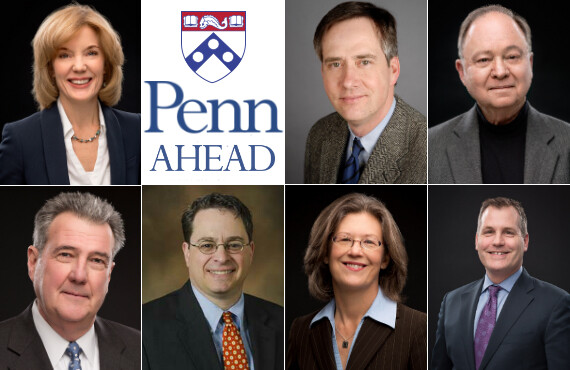Moving AHEAD: Alliance for Higher Education and Democracy at Penn
Seven faculty members from the Graduate School of Education at the University of Pennsylvania are advancing higher education and fostering open, equitable societies around the globe through the Alliance for Higher Education and Democracy, or AHEAD.
Under the leadership of professors Laura Perna and Matt Hartley, GSE AHEAD colleagues Robert Zemsky, Alan Ruby, Peter Eckel, Diane Eynon and Eric Kaplan conduct research and apply a multidisciplinary approach to address issues regarding higher education’s contributions to society.
The alliance focuses on creating knowledge about effective public policies and institutional practices by building capacity for institutional leaders and policymakers to improve higher education. AHEAD seeks to accomplish this by developing and training academic leaders who support shared governance and academic freedom; leading the conversation about the challenges facing higher education; promoting the education and training of the next generation of leaders and scholars; encouraging collaboration between researchers and practitioners; and engaging globally, which aligns with Penn President Amy Gutmann’s Penn Compact 2020.
AHEAD’s founding executive director, Perna, is an expert in college affordability and choice. Her research focuses on access and equity in higher education, college affordability, the transition from K-12 into higher education and the role of education in preparing students for available jobs, as well as the role and implications of massive open online courses for delivering higher education.
She says that, while much emphasis has been placed on the private benefits, higher education also produces many public benefits, like promoting open societies, as well as fostering democracy and equality. AHEAD seeks to further the public purposes of higher education.
“Higher education institutions must achieve their public purposes in the context of dramatic rises in tuition and other costs, increasing privatization and corporatization, changes in the demographic characteristics of students, globalization, technological changes and other forces,” says Perna.
“In many ways, AHEAD is a mechanism to bring together and build the substantial work that our researchers have been conducting separately for many years,” she says. “Our goal is to build on these prior activities with a more comprehensive, integrated and complete array of contributions.”
Matthew Hartley is AHEAD’s co-executive director. His scholarship examines the ways that colleges and universities conceptualize and achieve their educational missions. He pays particular attention to the civic purposes of higher education and the responsibilities of colleges and universities in a democracy.
Hartley’s research explores higher education reforms in Kazakhstan, which is shifting from a highly centralized system of governance to one with greater institutional autonomy, including the establishment of boards of trustees.
The alliance has also launched a new project, “What’s AHEAD: Key Trends in Higher Education,” a quarterly poll of higher education trend spotters and academic leaders that is used to produce an independent publication delivering timely information about issues facing higher education.
Launched earlier this year, AHEAD is working toward its sustainable future. In fall 2014, Penn GSE will conduct a micro-giving campaign to further advance “What’s AHEAD” and other initiatives.








